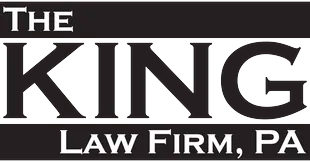Choosing a Trustee for Your Trust
Implicit to the any Trust is the Trustee, and more importantly, the idea of trust. It gets its name from the fact that Trusts are administered outside the purview of the court room and are private. When creating a Trust and appointing a Trustee, you are putting your trust in someone to carryout your intent with respect to what is contained in the trust agreement. It is important that the person serving as Trustee is deserving of both the title and your Trust as they are empowered with access to Trust property and are granted a great deal of authority.
When it comes to administration of the Trust, the Trustee’s job includes (i) maintaining trust assets (i.e. paying property taxes, repairing property, and maintaining appropriate insurance, etc), (ii) investing assets, (iii) reporting to beneficiaries, (iv) filing taxes, and (v) handling distributions of Trust property.
There are many types of Trust, and different purposes for establishing a Trust. Depending on the type of trust, you could serve as a trustee yourself during your lifetime and have someone else take over after you pass away. In Florida, virtually anybody – regardless of whether they live in the state – can be the trustee of a trust established here. But not everybody is a good choice for this responsibility. In determining who a good trustee might be, you may consider:
- Family members: Your spouse, sibling, child or other relative could be a good choice. As a member of your family, they will know you and your intentions for the trust well. They will also know your complex family relationships. On the other hand, impartiality could be a problem. When evaluating a family member, you should take into consideration their age, ability, availability and their understanding of finances, as well as the possibility of undue influence or bias.
- Attorney or accountant: You can also select a lawyer or accountant and take advantage of their professional knowledge of the legal and financial requirements involved. Because they are not part of your family, one of these professionals would also have the emotional distance to stay impartial and professional. Although, selecting a professional often results in higher costs.
- Corporation or bank: Some trusts require closer oversight or have complexities beyond that which a family member would be equipped to handle. In that space, Banks and Corporate Trustees, often fill this vital role providing professional administration of complex investments, that can provide a continuity of administration over generations. Although corporate Trust companies and banks may charge higher rates for Trustee services, the level of proficiency and professionalism is often unmatched by other options.
Whether you choose a professional or a trusted relative or friend, the person or business you pick must have the necessary integrity, business sense and organizational skills to take care of your trust properly. As your estate planning law firm, we will provide you with lawyers who will help you consider your options and make the best choice.
Discuss Trustees with an Experienced Attorney
Call The King Firm, PA, at 888-712-4771 or email us to schedule a free initial consultation at either our Pinellas Park or Tampa offices. We will discuss trustees and other trust-related matters.

